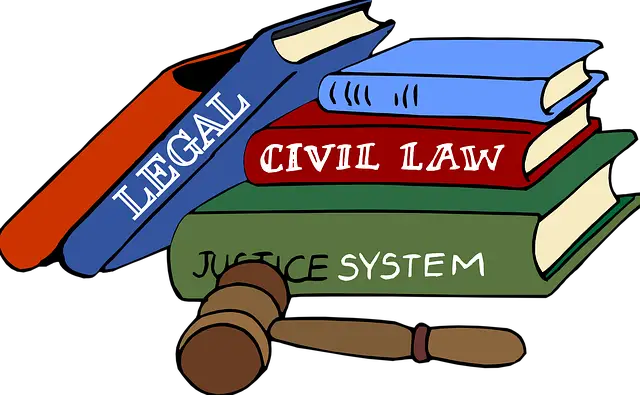Introduction

Legal advocacy is a critical element in the legal system, ensuring that individuals and organizations have their rights protected and interests represented. This blog post will delve into the various aspects of legal advocacy, its importance, types, and best practices. Additionally, we’ll explore frequently asked questions to provide a well-rounded understanding of the topic.
Table of Contents
- Key Skills and Qualities of Effective Legal Advocates
- Best Practices in Legal Advocacy
- Case Studies in Legal Advocacy
- How to Get Involved in Legal Advocacy
- FAQs About Legal Advocacy
- Conclusion
What is Legal Advocacy?

Legal advocacy involves the representation and support of individuals or groups to ensure their legal rights are upheld. This can take many forms, from direct representation in legal matters to broader efforts aimed at changing laws and policies. Advocates work within the legal system and beyond to address injustices, protect rights, and promote fair treatment.
Internal Links:
The Importance of Legal Advocacy

Legal advocacy plays a pivotal role in maintaining justice and fairness within society. Here’s why it matters:
- Protecting Individual Rights: Legal advocates ensure that individuals’ rights are protected against infringement. This is essential in cases involving discrimination, wrongful termination, or personal injury.
- Promoting Social Justice: Advocacy helps address systemic issues and disparities within the legal system, working towards a more equitable society.
- Shaping Policy: Through advocacy, legal professionals can influence public policy and lawmaking processes, pushing for reforms that benefit the community at large.
Internal Links:
Types of Legal Advocacy
Legal advocacy can be categorized into several types, each with its unique focus and methods.
Individual Legal Advocacy

This involves working directly with individuals to address specific legal issues or disputes. It includes:
- Client Representation: Advocates represent clients in legal proceedings, providing advice and navigating the legal system on their behalf.
- Legal Aid: Providing assistance to those who cannot afford legal representation, ensuring access to justice.
Internal Links:
Group Legal Advocacy

Group advocacy focuses on collective issues affecting groups or communities. This includes:
- Class Actions: Legal actions taken on behalf of a group of individuals with similar grievances.
- Community Outreach: Engaging with communities to address common legal issues and provide support.
Internal Links:
Policy Advocacy

Policy advocacy involves working to influence laws and regulations. Key activities include:
- Legislative Advocacy: Engaging with lawmakers to draft, amend, or support legislation.
- Public Campaigns: Raising awareness and mobilizing public opinion to drive policy changes.
Internal Links:
Key Skills and Qualities of Effective Legal Advocates

To be successful, legal advocates must possess a combination of skills and qualities:
- Strong Communication Skills: Advocates must be able to articulate arguments clearly and persuasively.
- Analytical Thinking: The ability to analyze complex legal issues and develop effective strategies is crucial.
- Empathy and Compassion: Understanding clients’ experiences and challenges helps in providing tailored support.
- Negotiation Skills: Effective negotiation can often lead to favorable settlements or resolutions.
- Attention to Detail: Precision in legal documentation and proceedings is essential.
Internal Links:
Best Practices in Legal Advocacy

To ensure effective advocacy, consider the following best practices:
- Thorough Preparation: Adequate preparation for cases and advocacy efforts enhances the likelihood of success.
- Client-Centered Approach: Always prioritize the needs and goals of the clients.
- Continuous Learning: Stay updated with legal developments and advocacy techniques.
- Collaborative Efforts: Work with other professionals and organizations to amplify the impact of advocacy.
- Ethical Standards: Maintain high ethical standards to build trust and credibility.
Internal Links:
Case Studies in Legal Advocacy

Case Study 1: Landmark Civil Rights Case
Explore how advocacy efforts led to significant legal changes in civil rights.
Case Study 2: Environmental Advocacy Success
Learn about successful legal strategies in environmental protection and policy reform.
Internal Links:
How to Get Involved in Legal Advocacy

Getting involved in legal advocacy can be both rewarding and impactful. Here’s how:
- Education and Training: Pursue relevant legal education and training to build your skills.
- Volunteer Work: Join organizations that focus on legal advocacy to gain experience.
- Networking: Connect with professionals in the field to learn and collaborate.
- Stay Informed: Keep up with current issues and trends in legal advocacy.
Internal Links:
FAQs About Legal Advocacy

What is the role of a legal advocate?
A legal advocate represents and supports clients or causes within the legal system, ensuring their rights are upheld and interests are protected.
How can someone become a legal advocate?
Becoming a legal advocate typically involves obtaining a law degree, gaining relevant experience, and sometimes obtaining certification or licensing depending on the jurisdiction.
What types of cases do legal advocates handle?

Legal advocates handle a variety of cases, including personal injury, civil rights, environmental issues, and more, depending on their area of specialization.
How does legal advocacy impact public policy?
Legal advocacy influences public policy by engaging with lawmakers, raising awareness, and pushing for legislative changes to address societal issues.
What are the ethical considerations in legal advocacy?

Ethical considerations include maintaining client confidentiality, avoiding conflicts of interest, and ensuring honesty and integrity in all advocacy efforts.